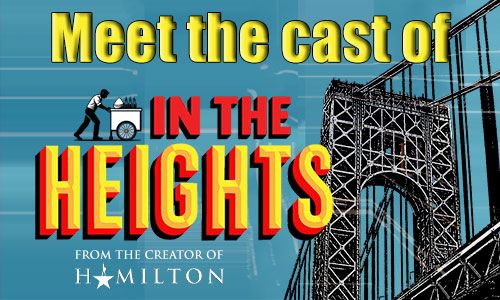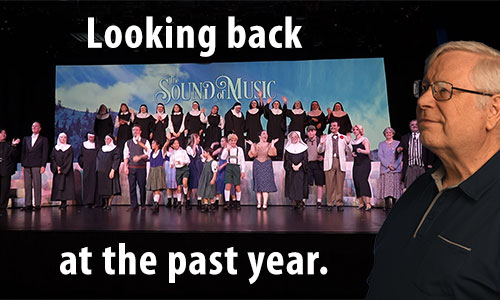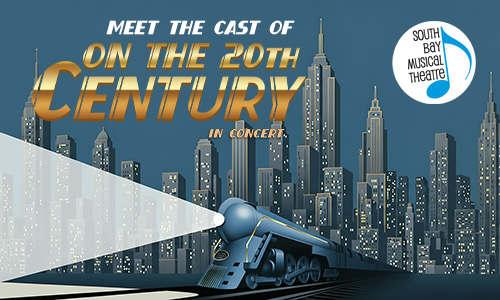Vocal Director Daniel Hughes is interviewed for the latest installment in SBMT’s series on “The Art of Theatre.” He discusses his involvement with the musical SHE LOVES ME, answering questions about the composers and their music, specific songs from the show, the use of harmony, and the role of a Vocal Director. He says he loves this production because of the talented cast, the transformational stories, the clever lyrics, and the satisfying escape it provides from the harsh realities of today’s world.
SHE LOVES ME continues its run at the Saratoga Civic Theater, 13777 Fruitvale Ave., Saratoga, CA now through Saturday, Feb. 15, 2020. Tickets and more information (including a separate “sizzle reel” video) are available on the company website at SouthBayMT.com/shows/ticket-sales/She-Loves-Me/. You can also call the box office 9 a.m. to 9 p.m. seven days a week at 408-266-4734.
Watch the interview below or scroll down to read the transcript.
Who are you, and what is your role in this production?
My name is Daniel Hughes, and I am the vocal director for She Loves Me.
Were you already familiar with She Loves Me?
Years ago, I played Arpad in a production, and then about a decade later, I conducted a production of it. But neither one of those were with really fine theater companies, so this is the first time I’m having an opportunity to work with a really excellent theater company doing such a special story.
What excites you about this show?
What excites me about this show is that I think She Loves Me is a wonderful story about transformation that each one of the characters has something about them where they feel like the world doesn’t see them as who they truly are. Arpad wants to be more than a shop boy. Ilona wants to be more than a person stuck in a relationship where she is used. Georg and Amalia don’t even realize who each other are, and they fall in love with each other. So everyone has their own journey of transformation and an opportunity where the world gets to see who they really are from the outside in.
Tell us about the music in She Loves Me.
The score was written at a time where there was still Golden Age-style musical theatre writing, and because it’s set in 1930s Hungary, there is a very classical gypsy-like Hungarian Rhapsody-like element to it that I find thrilling as a classical musician.
What’s your favorite song from the show?
Oh boy. It’s hard for me to pick one song. “Try Me” is a favorite because I did that role many, many years ago.
(singing) In this emergency, I wouldn’t let you down, Mr. Maraczek. Try me!
And I love the song “Will He Like Me?” I love the romantic and tentative nature of the message.
(singing) Will he like me?
And I especially love the Christmas sequence at the end, where the ensemble gets crazier and crazier with the shopping of the Christmas season. I think it’s delightful.
(singing) Twelve days to Christmas. Twelve days to Christmas. Plenty of time to do your Christmas shopping.
How is it working with this cast?
This cast has been a dream to work with. They are all very skilled performers, but they’re also really generous-hearted people. And that always makes for a wonderful rehearsal and production-making experience.
What do you do as Vocal Director?
A vocal director teaches the parts to the ensemble, for example the harmony parts, as well as works with the individual soloists on coaching the musical phrasing to help exemplify the characterization, so you are not just putting notes on paper, but you are actually helping them craft a character through their singing as well as navigating through any technical problems there may be. And this show is technically demanding. It really requires a lot of many of the singers in terms of range and tessitura, and what not.
(singing) Thank you, Madam. Please call again. Do call again, Madam.
Does the ensemble sing a lot of harmony?
The doorbell sequence—whenever they thank a person for coming and shopping—this wonderful little close-harmony kind of melodic thing that happens over and over, and in the final number, “The 12 Days to Christmas,” there is some lovely harmonic part writing in there and intricate counterpoint rhythm. But the ensemble actually only sings on a couple of pieces. They’re busy throughout the show, but they only sing thing in a few things. So, in terms of harmonic writing, it isn’t too terribly difficult.
What should the audience listen for?
I think the audience should keep their ears wide open for very clever lyrics.
(singing) Put a little lipstick … on your nose … twice … Morning and evening … And a little brush for … combing my … teeth!
As well as allow themselves to just have the beautiful harmonic language of the music just wash over them, because it’s a satisfying score musically. It’s beautifully crafted and lush. It feels like an old-fashioned show. You know, it’s set in 1930s Hungary. The score really captures that.
How does this show compare to others by the same composers, like Fiddler on the Roof?
I think it’s very different from both of them. Obviously, Fiddler on the Roof is very well-known. It has this very strong ethnic component built into its musical vocabulary. This has its own version of that. And I am convinced that Bock and Harnick had a really good friend who was an amazing violinist because both shows require a virtuoso violinist in the pit. So I always wonder: they must have somebody that they know, or they really, really love the violin.
Why should people come and see this show?
You should come and see the show because it’s a show that speaks to every person. At any given time, an audience member should feel like they relate to a character on the stage. They are very three-dimensional in the way they are written. And it’s a delightfully satisfying show. At a time where things can be a little bit frustrating in the world, this is an opportunity to put your emotional feet up and have a wonderful time.




Leave A Comment